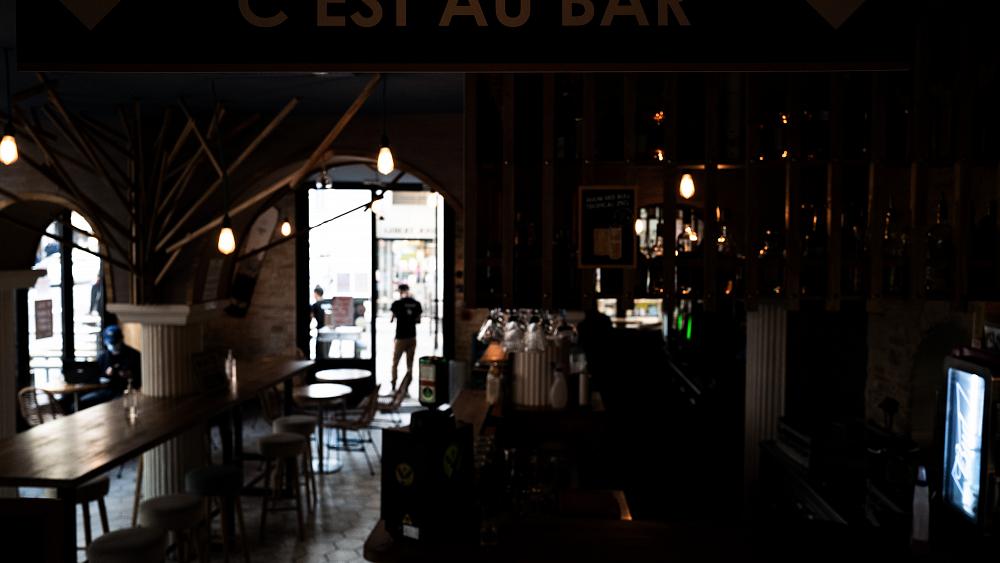
The latest developments on the coronavirus pandemic in Europe
The Czech Republic and neighbouring Slovakia have registered big jumps in new coronavirus infections, setting a new record for the fourth straight day.
The Health Ministry in Prague says the day-to-day increase reached 8,618 confirmed cases on Friday, over 3,000 more than the previous record set a day earlier in the nation of over 10 million.
The Czech Republic has had a total of 109,374 cases since the beginning of the pandemic with 905 deaths. Of those, almost 27,000 have tested positive in the first five days of this week while 146 have died this week, according to Saturday’s figures.
The government has responded to the record surge by imposing a series of new restrictive measures. Prime Minister Andrej Babis said on Friday he cannot rule out a lockdown of the entire country.
In Slovakia, the health ministry reported 1,887 new cases of infection on Friday, over 700 more than the day before.
Prime Minister Igor Matovic says the government is preparing further restrictive measures that will be announced on Sunday.
Spain: Police have been deployed in Madrid, after a state of alert was announced in the Spanish capital and surrounding areas due to the explosion in COVID-19 cases.
The state of alert – cancelled yesterday by a court decision but now reimposed by the central government – is in effect for 15 days, restricting all non-essential trips in and out of the city, and renewing restrictions on bars, restaurants, shops, sports venues and more.
Spain’s interior minister said 7,000 police would be deployed to enforce the restrictions. Officers duly began carrying out checks on Friday.
Germany: Several large cities, notably Berlin, Cologne and Frankfurt, have imposed restrictions on nightlife, the result of a spike in virus cases.
In the capital, most shops as well as all restaurants and bars will have to close from 11 pm to 6 am from Saturday and at least until 31 October.
Cologne and Frankfurt have taken similar measures, with bars and restaurants closed and alcohol sales banned from 10 pm.
A country that up until now has escaped the worst of the pandemic, Germany is seeing a big rise in cases with more than 4,000 new daily cases, a record since April.
Chancellor Angela Merkel warned on Friday that new restrictions would be imposed soon if the contamination wasn’t halted, while the day before her health minister said she feared an “uncontrolled” spread in the country.
France: Strict measures took effect in more cities on Saturday, with Lyon, Grenoble, Saint-Etienne and Lille joining Paris and Aix-Marseille as maximum alert zones.
In these areas bars are being closed, and restaurants will have to enforce strict measures to remain open.
The country’s maximum alert level kicks in when the incidence rate of the virus exceeds 250 cases per 100,000 people and at least 30 per cent of intensive care beds are reserved for COVID-19 patients.
France registered 20,339 new cases in 24 hours, a new record, according to official figures on Friday evening.
The government’s scientific council has not ruled out the possibility of local lockdowns “if necessary”.
Elsewhere, in Belgium, cafés and bars closed on Thursday morning throughout the Brussels region. In Poland, the government has announced that it is making the wearing of protective masks compulsory throughout the public space, as in Italy.
In neighbouring Austria, the government has not totally ruled out a second containment after a record number of new contaminations in 24 hours, as in Croatia further south.
Russia also broke a record of new daily cases on Friday – 12,126.
‘No new answers’ to COVID-19, says WHO
The World Health Organization (WHO) said on Friday it had “no new answers” to the coronavirus pandemic, as it reported a worldwide record of 350,000 new daily cases.
The health agency said the confirmed daily high of 350,766 cases surpasses by nearly 12,000 a record set earlier this week.
That tally includes more than 109,000 cases from Europe.
WHO’s emergencies chief Dr Michael Ryan acknowledged the worldwide surges, saying “there are no new answers.”
He said although the agency wants countries to avoid punishing economic lockdowns, governments must ensure the most vulnerable people are protected and take measures toward that end.
Related posts:
Views: 0
 RSS Feed
RSS Feed

















 October 10th, 2020
October 10th, 2020  Awake Goy
Awake Goy  Posted in
Posted in  Tags:
Tags: 
















